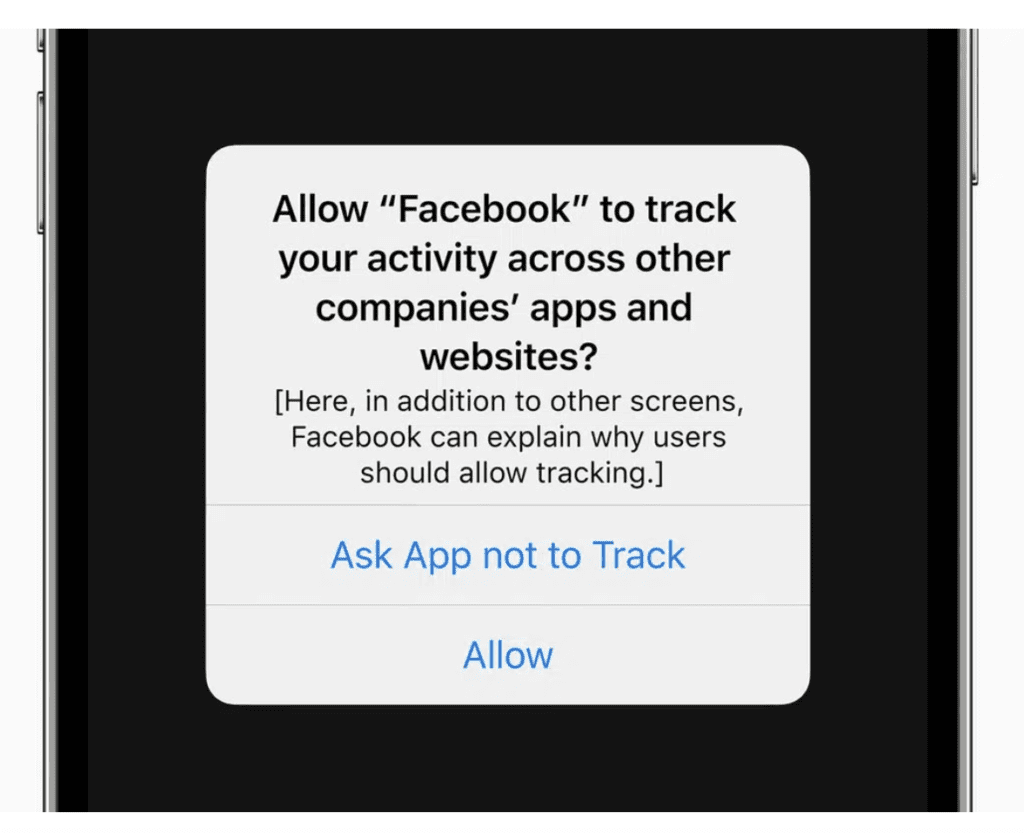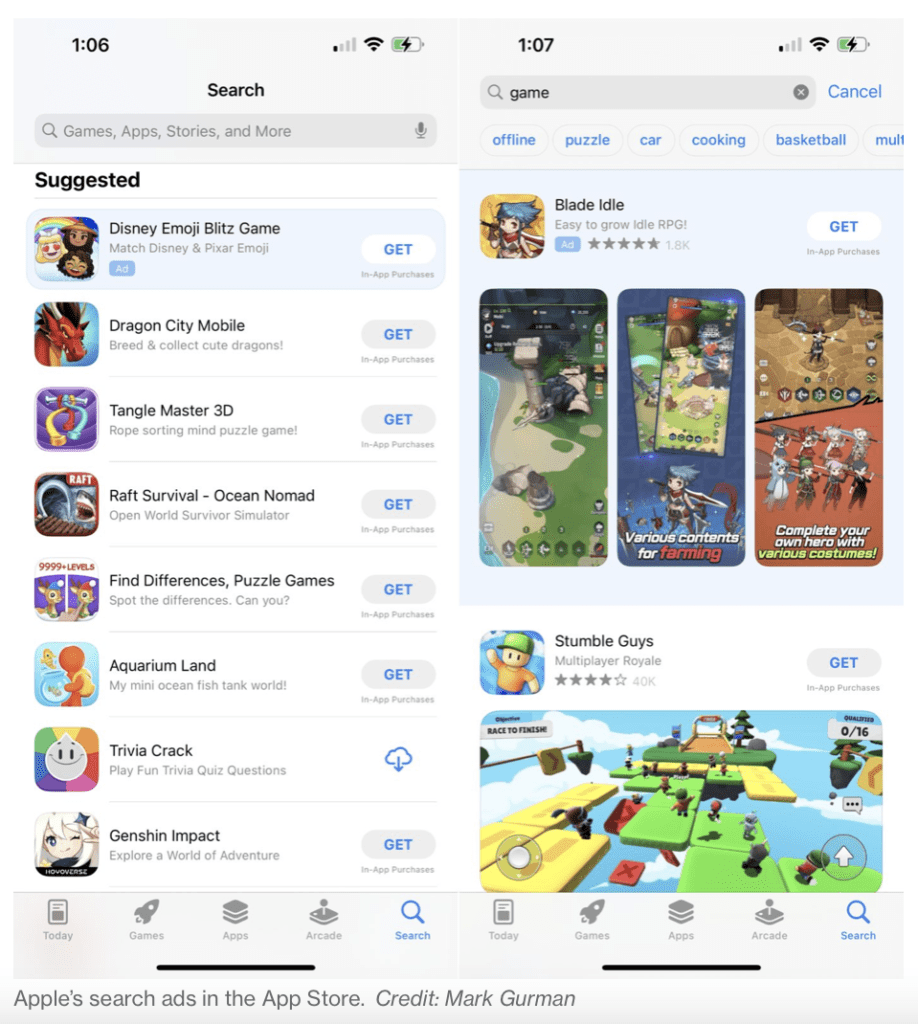Apple changed the advertising industry when the company launched an important privacy control in 2021, Application Tracking Transparency (ATT). ATT asks iPhone users to decide whether apps can track them across other applications and websites. After the introduction of ATT, 62 percent of iPhone users opted out.
This has created a problem for advertisers and ad tech platforms such as Meta that rely on the ability to track user behavior across the web in order to serve up targeted ads to them. Without tracking user behavior via third-party cookies, their ads are less personalized. Meta said that ATT would cost the firm $10 billion in revenue in 2022. Apple, for its part, justified the new privacy control as taking a stand for consumer privacy.
Well, we now know Apple had something else in mind with ATT: taking a stand for Apple’s advertising business.
As Bloomberg reported recently, Apple is now earning $4 billion in revenue annually by selling ads on its devices, and the company plans to grow that amount aggressively. Granted, $4 billion is a far cry from the $209 billion that Google pulled down from advertising in 2021, but Apple’s newfound focus on ads sure casts its consumer privacy push in a different light.
How Does Apple Earn Ad Revenue?
Apple makes money selling ads on spaces that people see all the time on their iPhones and connected TVs as they navigate their screens to download apps, read the news, and watch content. Those include:
- The App Store, as shown here:
- Apple’s own News and Stocks apps.
The additional ad revenue will come from:
- The Today tab (the home page of the home page of the App Store, which includes content ranging from App of the Day to Game of the Day).
- The You Might Also Like section of the App Store (this is found at the bottom of the App Store).
- Third-party app download pages.
Does ATT Apply to Apple?
How will Apple sell targeted ads? By collecting first-party data, meaning the information that users of Apple devices cough up to Apple whenever they use the App Store, News and Stock apps, and so on. And, by the way, Apple will not make it easy for users to opt out of having their data tracked. You can disable the ad personalization feature, but you have to look for it under Apple Advertising in the settings app’s Privacy & Security menu. There is no pop-up menu asking you if you’d like to have tracking disabled as is the case with ATT, as shown below: But shouldn’t ATT also apply to Apple? Not in Apple’s view. According to Bloomberg:
But shouldn’t ATT also apply to Apple? Not in Apple’s view. According to Bloomberg:
You may ask then, why don’t Apple apps have to ask permission to track users via a pop-up message? That’s what happens with other apps under ATT.
The reason, Apple says, is that the system “does not follow you across apps and websites owned by other companies.” That’s what ATT is designed to prevent. If a third-party app doesn’t track across outside apps and websites, it also doesn’t need to show a pop-up.
The “we are exempt from our own policy” rationale is how Google justifies its plans to kill third-party cookies on the Chrome browser. Google apps such as YouTube are exempt because technically they collect first-party data, not third-party data.
It’s easy to connect the dots and see what’s going on here: by attacking third-party cookie tracking, Apple bolsters its own ad program, which relies on first-party data collection.
Apple’s ad business is far too small to threaten the lead enjoyed by Amazon, Google, and Meta. But Apple has the muscle and money to grow its business quickly. ATT was a declaration of war.
What Advertisers Should Do
- Ask whether advertising on Apple makes sense for you. Apple product owners tend to be more affluent than the general population, and iPhones in particular give any brand global reach. A business with a strong understanding of mobile advertising is well positioned to capitalize on advertising on Apple.
- Understand the big picture. There is no going back: tech firms such as Apple and Google are undercutting the value of third-party cookies. Accept the reality that as third-party cookies crumble and technology companies enact privacy controls, your ads will be less targeted than they were. This does not mean you should stop advertising online. Online advertising remains the most efficient and cost-effective way to reach your audience. At the same time, first-party data is more valuable than ever to advertisers as a means to creating targeted ads. Consider ad platforms such as Amazon Advertising and Walmart Connect, which give businesses entrée to a vast base of customers who search and shop on Amazon and Walmart. True Interactive offers services on both platforms in addition to our longstanding work on Google, Bing, and other platforms. Learn more about our services with Amazon Ads here and Walmart here. Apple and Google cannot undercut what these companies are doing.
True Interactive can help you navigate the ever changing world of consumer privacy and advertising.
Contact True Interactive
To succeed with online advertising, contact True Interactive. Read about some of our client work here.
Lead image source: https://pixabay.com/photos/apple-inc-mac-apple-store-store-508812/

